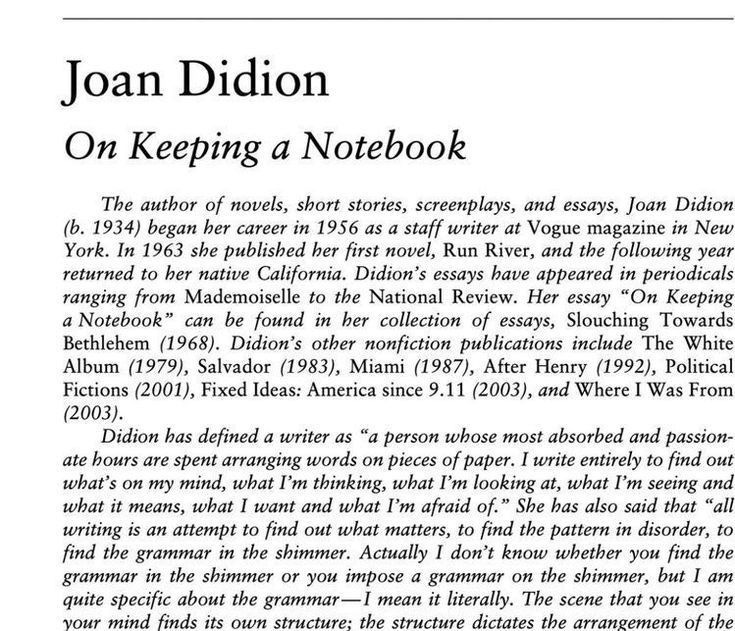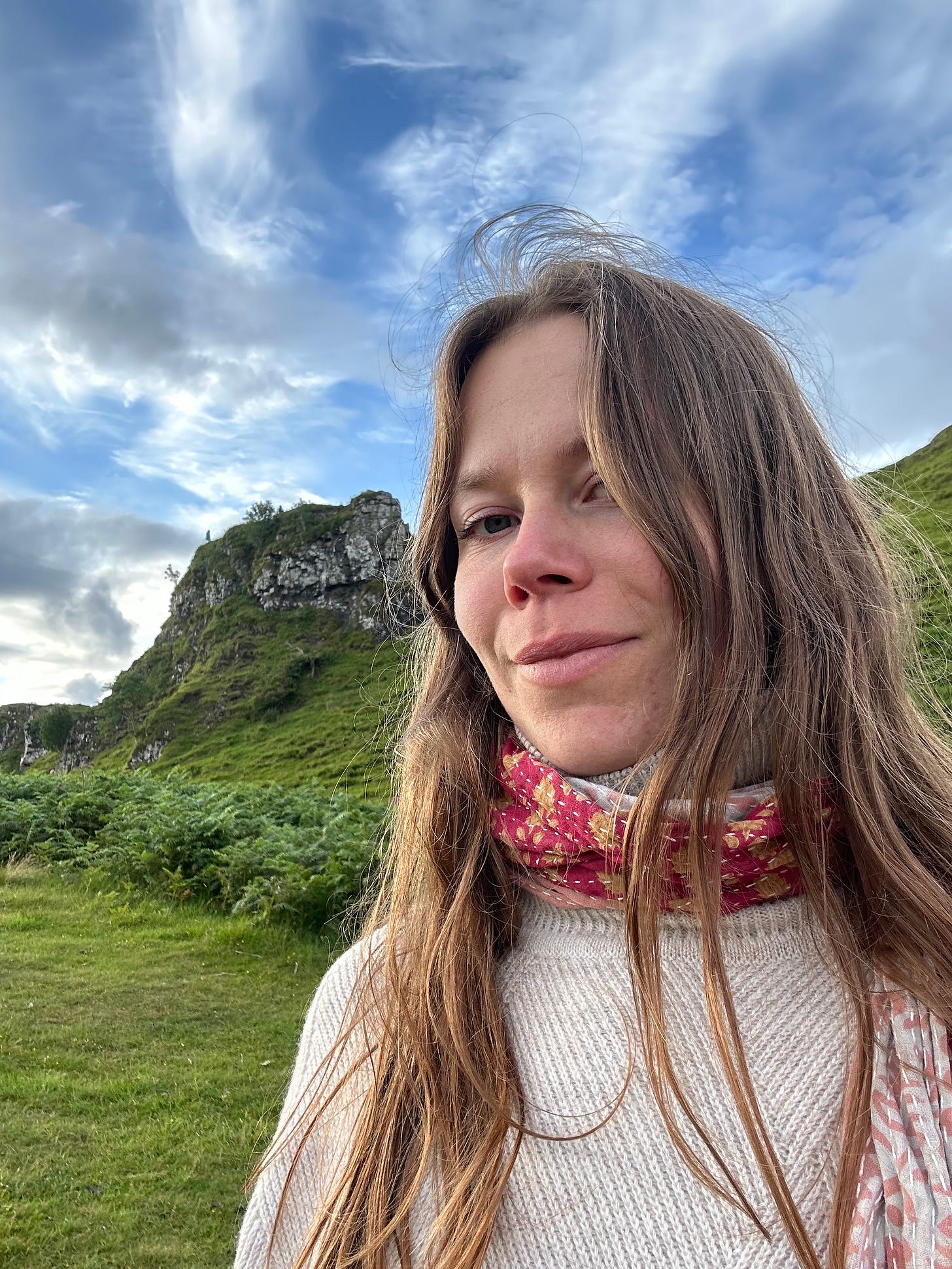How Writing in Public Will Change You
5 ways to face yourself and the world
Public announcement
On the 30th of October Headwaters 6-week long writing course begins! We will work through creative blocks and dive into authentic writing. You can find all the information about the course here. 𖦹
Writing will change you.
Writing in public will transform your perception of yourself and what matters to you the most. That is, if you write truthfully.
These 5 ways come from my personal experience of writing publicly on Substack and other platforms for over 5 years. I wanted to keep it short.
1. Writing will expose you to yourself (and your inner critic)
Writing will show you how afraid you are to tell your own story.
Recently I learned that those of us who have experienced insecure attachment in childhood (and adulthood), learn to focus mostly on others. Focusing on the self becomes uncomfortable, alien, “selfish”.
Self is an unknown ecology. Getting lost in the woods of other grants a permission to forget about our own needs, our own opinions, our own desires.
With the inner and outer eye fixated on other, many people (especially women) end up in roles that are supportive, rather than creative. Working in the background. Working for someone else. Building someone else’s product. Promoting someone else’s ideas, while your own heart bursts with desire for something of your own.
But when you write, you have to cross this deeply uncomfortable line of self-focus: to face your experience, your feelings, your thoughts.
Writing is not about transcending the ego, it’s about developing a healthy ego that can support our work and put it out into the world.
If you are other-focused in your primary work, this is for you.
To help others, you must become self-centred and self-important.
(Not in a narcissistic way, not in a narrow-minded way. But in realizing that your work is important, your voice is important, your art is important.)
Otherwise, you will not make time to write. You will comply with the inner critic’s ideas of you. You will not publish and share your work with others.
As much as other writers (artists) might seem selfless in their writing, they are not.
Contemporary authors who are ‘making it’ as writers tell their story over and over again until they build real estate in your mind. Have you noticed? Have you caught yourself thinking about their story? I have.
Writers and artists are mythologizing themselves, sometimes unconsciously.
Writing is about daring to write what you truly feel and think. And most importantly, finding words that reflect those feelings, thoughts, and experiences.
Here, your body will help you. Your imagination will open your mouth.
Your body is always feeding you waves of information, impulses, visuals, sensations, states of being.
How will you translate them into words?
What do you want to write? What are your standards? Your voice? What stories are asking to come through you?
Your body will show you what is actually important to you versus what you claim is important to you.
2. Writing will expose (and connect) you to others
This is inevitable if you write in public.
You will be exposed and you will connect. You will affect people’s lives. This is a privilege and responsibility.
You will also be visited by writer’s best friend: silence.
The silence that comes with putting your art into the commons.
David Whyte talks about this type of silence that has a very particular flavour. This silence will expose any wound of insignificance that you have.
It will let you ferment in questioning the meaning of writing and if it’s for you.
This silence will be an initiation process. Don’t turn away from it.
Allow it to burn through you and sit with the inner critic, the ridicule, the shame, the feelings insignificance.
Many times I have felt unseen in my writing. Some of my most vulnerable work has not been received as I imagined (in public). But many people were in my DMs agreeing and expressing how seen they felt. This connection triumphs over likes and comments. Outer numbers won’t always reflect the minds you have changed and the hearts you have moved.
Some of my readers have told me about deeply life-altering decisions they have made after reading my pieces. To me, this is the most precious gift I could ask for.
Accept that your image of yourself and how you appear on the outside will migrate to wild places.
Your image will fly to meadows, to forests, to swamps and sewages, and back to the vast skies. Allow your self and your outer image to be a migratory bird. You will change with every piece you write.
Allow yourself to be seen. Face the inertia of insecurity.
Accept the release which comes after meeting the terror of being known just a little.
3. Writing will warp time, change your mind, and you will experience synchronicities
When you become obsessed with an idea, a myth, a story, a concept, a garden, a place — whatever that you can be obsessed with — writing will wire you to continue looking for connections. Personal example:
I am building a course on writing.
I have created an outline of what I want it to contain.
A part of my mind has transformed into a prey bird, gliding in the tall sky. Ready to catch a new idea that will perfectly fit into the course.
Ideas come while listening to a podcast, reading, or on an evening walk. I must be quick enough to catch them. I must be attentive, open.
When your mind has a goal (even if you are not working on it actively) it will bring you ideas like a hunting dog brings prey. Thank it.
It gets more mystical.
My friend is currently writing a story that includes a heron as one of the main protagonists. She is obsessed and I have witnessed it first hand. She had fallen into many rabbit holes with herons. But herons have also come to her.
Spending time by a lake - heron lands next to us or flies above our heads. She follows her ping to walk to the studio and meets a heron in a river as she’s crossing a bridge. They come to her through songs, other people, and places.
It feels as if the world conspires, creatures, spirits, and time conspire in your task of bringing through a story.
Carl Jung’s take on synchronicity:
Jung defined synchronicity as an “acausal connecting (togetherness) principle,” “meaningful coincidence”, “acausal parallelism” or “meaningful coincidence of two or more events where something other than the probability of chance is involved.”
Carl G. Jung (1960),Synchronicity: An Acausal Connecting Principle, Princeton University Press, 2012
Be generous in your listening. Be generous in your openness.
4. Writing will make you focus (by making you feel distracted first)
Writing will expose how distracted you are.
This is great. That is what you want. Without this awareness, nothing can change.
If you want to put anything of value into the world, it will require your undivided attention.
For anything to be written, there will have to be focus, obsession, repetition, momentum.
Mary Oliver has written an incredible essay on her writing process, encouraging writers and artists to meet the intimate interrupter within.
Writing will ask you to focus with the self. To regulate the mercurial nervous system that desires to spread itself like slime mould into all four directions. You will learn that prioritizing this work — your soul’s work — will invite you to reckon with your identity and resistance on the deepest level.
5. Writing will ask you to step into the archetype of a writer
If you are called to write, to share your world with others in words, then you are a writer.
The writer within can be waiting for years for you to sit down and write your first words on the screen or paper. It’s there when you procrastinate, when you agree with your inner critic, when you delay your writing, or make excuses, or suddenly have to tend to others’ incantations of what is important.
It’s there when you finally decide to meet yourself at this new frontier and finally embrace it.
The writer within wants to paint in words. Wants to build worlds in letters, to lay out paths in stories. But most importantly, it wants to bring your inner-most potential to the surface, so it can be met by others. It wants your soul and your art to meet the world, naked.
When you write, you are a writer.
The more you write, the more momentum this archetype catches. The more it can grow into an ally who can attract new opportunities, meet kindred-soul people, and nurture your authenticity.
When David Whyte decided to become a full-time poet, he promised himself to do something every day that would bring him closer to his future life as a poet. 365 days of making a single action a day towards this vision. He didn’t need to wait half a year when opportunities started flowing in.
Exercise
Connect with the writer within who holds a vision for your art.
Tap into this energetic in your body.
What is one action today that you can take that will reflect this energy?
It can be as short as 15 minutes, as long as it’s coming through from that visionary essence.
We procrastinate because we can’t bear the multitude of changes that our authentic self is asking for.
Instead, do a small fraction and see how it flushes your body with energy.
What are your experiences with writing in public? What have you learnt so far?
Would love to hear your thoughts!
Much love,
Rūta







"Self is an unknown ecology" 🤤 beautiful phrasing and a generally wonderful exposition of how writing takes us inwards, outwards, upwards and all-aroundwards. I'm a few weeks into my public writing journey on here (though I've written for brands for many years) and have been reflecting a lot on what draws me to writing as a mode of expression. It was the subject of my latest post and I landed on the metaphor of a "membrane — something that straddles our inner and outer worlds, but instead of serving as a boundary that separates the two, it's more like a connective tissue that brings them more closely into alignment.” Thank you for bringing us along on your journey! ✨
This is lovely Ruta. Your post reminds me of some fabulous prose poems be Ben Lerner: the voice; the stone; and on disliking poetry
And it’s very helpful at this point in time. I’ve been on Substack for a while as reader but keep feeling an impulse to step into a newsletter. Thank you for the encouragement.